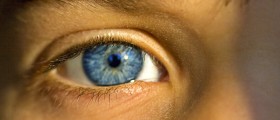
Down syndrome is a congenital condition which manifests through an additional chromosome being present on the 21st chromosome. Therefore, this condition is also referred to as trisomy 21. This condition appears in every 800th baby, statistically.
As for the symptoms of Down syndrome, these can vary from a child to a child. Regardless, this condition does bear certain symptoms which always go hand-in-hand with it, mostly being mental and physical impairments or characteristics.
Down Syndrome in Teenagers
While some teenagers may manage to live with Down syndrome, leading normal, productive lives, others may not be capable of taking proper care of themselves or performing simple, existential tasks. Since this is a congenital condition, it cannot be prevented. However, it can be detected early, even before the child is born. Through this early detection and timely treatment, Down syndrome in a child can be managed successfully, allowing the affected individual to experience as much in life as possible.
We are still to find out the direct causes of Down syndrome. Fortunately, we know about certain risk factors which can be related to this condition. Basically, women who are older than 35 have 1 in 350 chances of giving birth to a baby with this health problem. On the other hand, for women who are 30 years old, the chances are 1 in 900. Finally, by the mother's age of 40, every 100th baby may be born with the Down syndrome.
Teenagers and kids with Down syndrome are bound to be different than others. Namely, they are likely to have a flat facial profile, have an upward slant of the eyes, small ears and a protruding tongue which may commonly interfere with proper speaking.
Additionally, children with Down syndrome may suffer from low muscle tone, even though this condition improves over time in most cases. Nevertheless, a child suffering from Down syndrome is likely to learn how to sit up, walk, crawl and perform other such motor actions later than other children of his/her age.
As far as certain problems stemming from birth are concerned, these children develop and grow at a slower pace, commonly suffering from constipation and learning problems, along with the forms of impairments. For this reason, parenting a child with Down syndrome is not the same as parenting a healthy child. Also, no unrealistic expectations should appear and parents need to be aware of their child's limitations.
At birth, it is very hard to know how the mental and physical distance that a child with Down syndrome will reach. In some situations, you may even need professional assistance. In this case, talking to people who are walking in your shoes, parenting other children with Down syndrome, can help you learn more about this condition and your child him/herself.
Also, many countries, municipalities or cities offer special interventions for children with disabilities so make sure you take advantage of this too. Additionally, physical, occupational and speech therapy are all bound to be very helpful, especially when applied from the earliest days of your child's life.
Finally, one of the greatest problems parents of children with Down syndrome face is related to education. Namely, once the child reaches the required age, he/she is supposed to go to school. Choosing the right school for the child with Down syndrome may be a difficult task. Inclusion will allow the child to go to school with all other children. This can result in many positive experiences, but may lead to quite a few negative ones too.
Hormonal Problems in Down SyndromeApart from many physical and mental problems a child with Down syndrome may experience, including heart defects, hearing problems, learning impairments, etc, he/she may also suffer from various hormonal problems which can lead to problems in school, both on a social and educational plan.
About 10% of all children who suffer from Down syndrome have problems with their thyroid gland, being a gland located in the neck area. This gland is responsible for regulating many hormonal processes, predominantly dealing with controlling one's metabolism.
Due to problems with the proper functioning of the thyroid gland, children with Down syndrome may develop a condition called hypothyroidism, resulting in a wide-array of symptoms. Lack of energy is commonly present in these patients, along with excessive weight gain, slow reactions on both mental and physical stimuli, pain and weakness in the muscles and dry, flaky skin.
On the other hand, children with Down syndrome may be suffering from hyperthyroidism, resulting in excessive production of thyroid hormones. This can result in hyperactivity, breathing problems, mood swings, sleeping disorders and sleeping inconsistency, lack of energy and a need to go to the bathroom frequently in order to urinate.
All these problems can affect the way that a child with Down syndrome behaves and acts while in high school. Taking into consideration that this is the time of formation of one's personality, these health problems can lead to some other complications, mainly on a social level. Fortunately, through proper support and timely treatment, a child with Down syndrome can manage to go through most of these life problems without significant issues.





-And-Children-16-Warning-Signs-And-Symptoms_f_280x120.jpg)










Your thoughts on this
Loading...